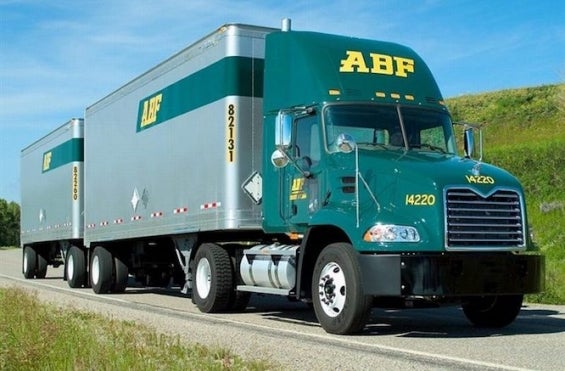Headline News | News
Update From National Freight Division Director Ernie Soehl for April 9, 2020

The following is an update from Teamsters National Freight Division Director Ernie Soehl:
It is with great sadness that I have to report that we lost a union brother to the Covid-19 virus. Tommy Hogan, a shop steward at the ABF Freight terminal in Brooklyn, New York and recording secretary for Local 707 died due to complications from Covid-19. Brother Hogan was a terrific guy and was liked by all. No words can describe how sad this is. He will truly be missed. Our deepest condolences go out to Tommy Hogan’s family and friends.
We find ourselves in unprecedented situations in the freight industry. We have seen some terminals this week where someone has tested positive for the virus. ABF’s Brooklyn terminal was shut down, is being deep cleaned and disinfected and may reopen on Friday, April 10 if cleared by state health officials. At a YRC terminal, a lower-level supervisor tested positive and the terminal was temporarily shut down while it was disinfected. There are, however, approximately 18 members and six non-bargaining unit employees who had been in contact with that supervisor, and they have now been placed on a mandatory 14-day quarantine. That terminal has since reopened. There are other terminals that have similarly been hit by the virus. In all cases, the appropriate governmental authorities were promptly contacted.
Again, it is critically important that all freight members follow the CDC’s recommendations regarding hand washing and social distancing. The companies appear to be cooperating in this regard to the extent possible. We have, however, heard that some locations may be running short on hand sanitizer and other supplies. I have contacted the companies and urged them to do whatever it takes to get the proper supplies to the workers immediately. Every member should also be prepared individually and carry their own sanitizer and disinfecting wipes if they have them.
We are continuing to urge the companies to temporarily convert “laydown” runs into “meet and turns” so that drivers do not have to sleep in hotels and can return home. Again, it is not possible for all runs, but every little bit that we can do to minimize public contact helps. Likewise, we are urging the companies to minimize the number of individuals who get in and out of the tractors whenever possible. In this regard, we are trying to minimize the number of “slip seat” meets and instead are trying to get the companies to allow, whenever possible, for drivers to perform drops and hooks at meet-and-turn locations so that the driver can keep the same tractor. Again, this minimizes exposure.
We have also urged the companies to relax restrictions on taking vacation and personal leave so that displaced drivers can access their leave.
Earlier this week, we reached an agreement with the YRCW companies to allow the members to voluntarily opt out of workers’ compensation modified duty. ABF had already relaxed its modified-duty requirements. This would allow an employee at his or her option to not have to go to work and perform modified duty and instead simply accept the normal workers’ compensation benefits in accordance with the applicable state’s rules and regulations. This is optional on the part of the member.
Overall, freight companies are suffering nearly across the board (union and non-union) as volumes drop amid customer closures and customers seeking to push off payments. As the Covid-19 pandemic continues, the freight sector of the economy will likely be particularly hard hit.
This week, we are looking at approximately a 30-percent drop in volumes overall. As a result, we are seeing an increasing number of layoffs. Obviously, the freight levels differ by company and by terminal so not every terminal is experiencing the same level of work. Nevertheless, the layoffs are starting to mount. Unfortunately, the layoffs will continue to get worse as the Covid-19 virus spreads and this national emergency continues.
Some of the Health and Welfare Funds have made modifications to address displaced workers and are providing some mechanisms for increased and/or continued coverage. Each fund is different, however, and many employees on layoff may face a loss of coverage. We would urge that in these terrible times, the Health and Welfare Funds, particularly those with significant reserves, would explore ways to provide continued coverage. Members should contact their Health and Welfare Funds directly if they have questions.
Finally, I would like to again express my sincere thanks and appreciation to our brave and tireless members who have dedicated themselves to keeping the country’s critical lines of transportation rolling. I urge you to be safe and not take anything for granted.